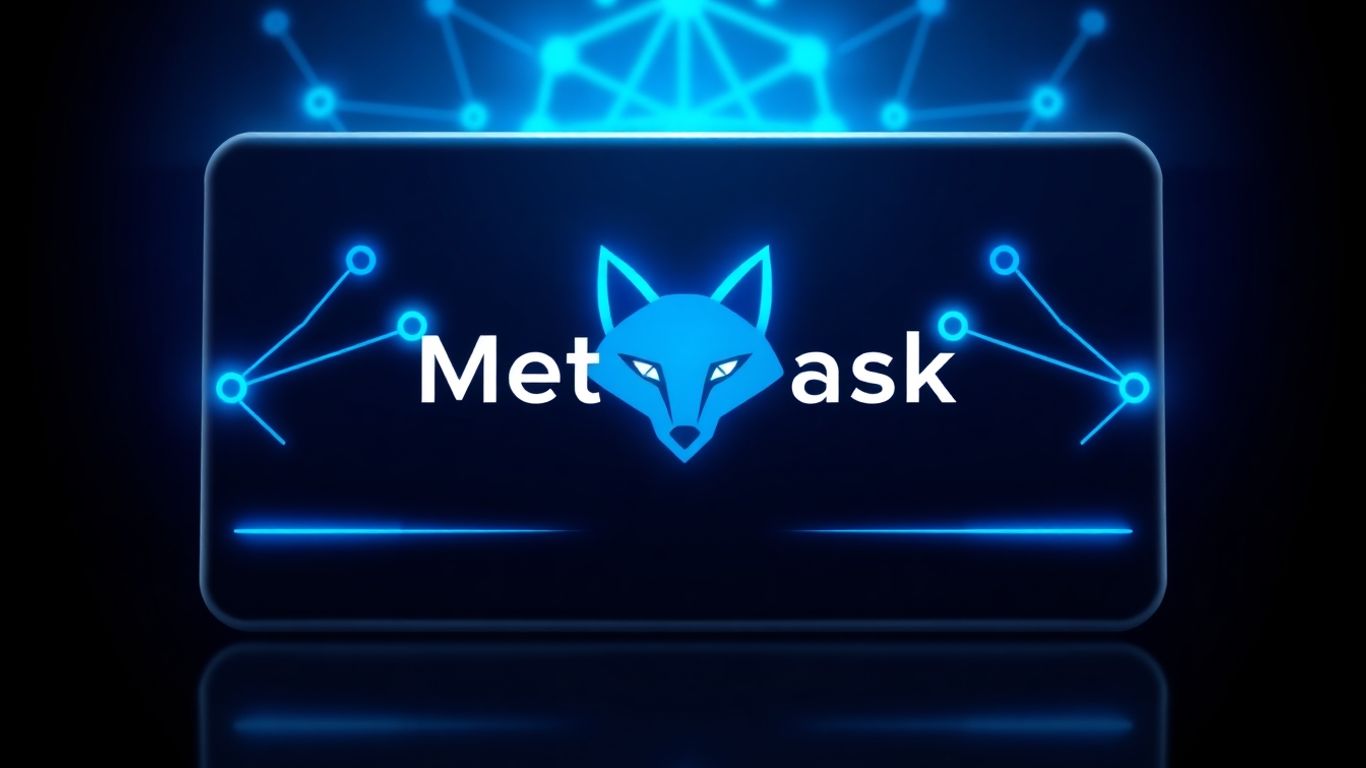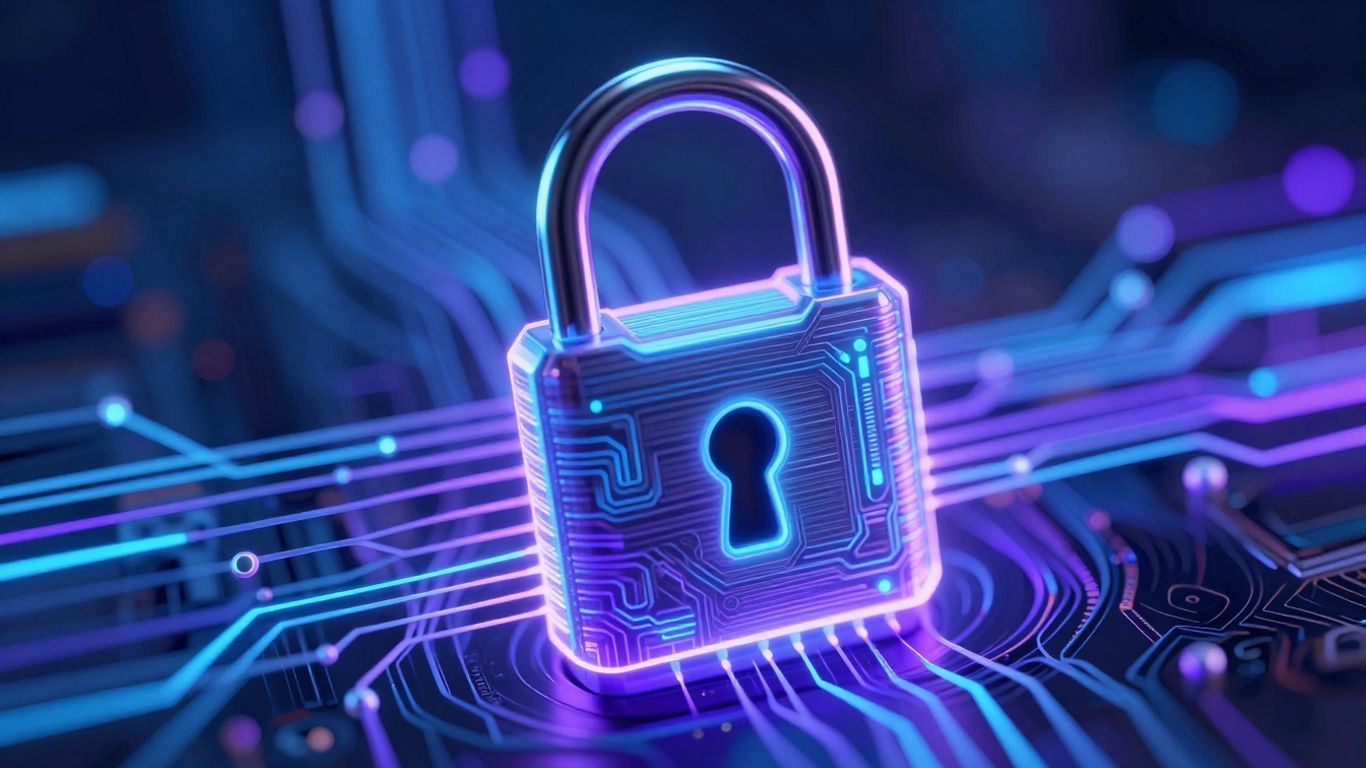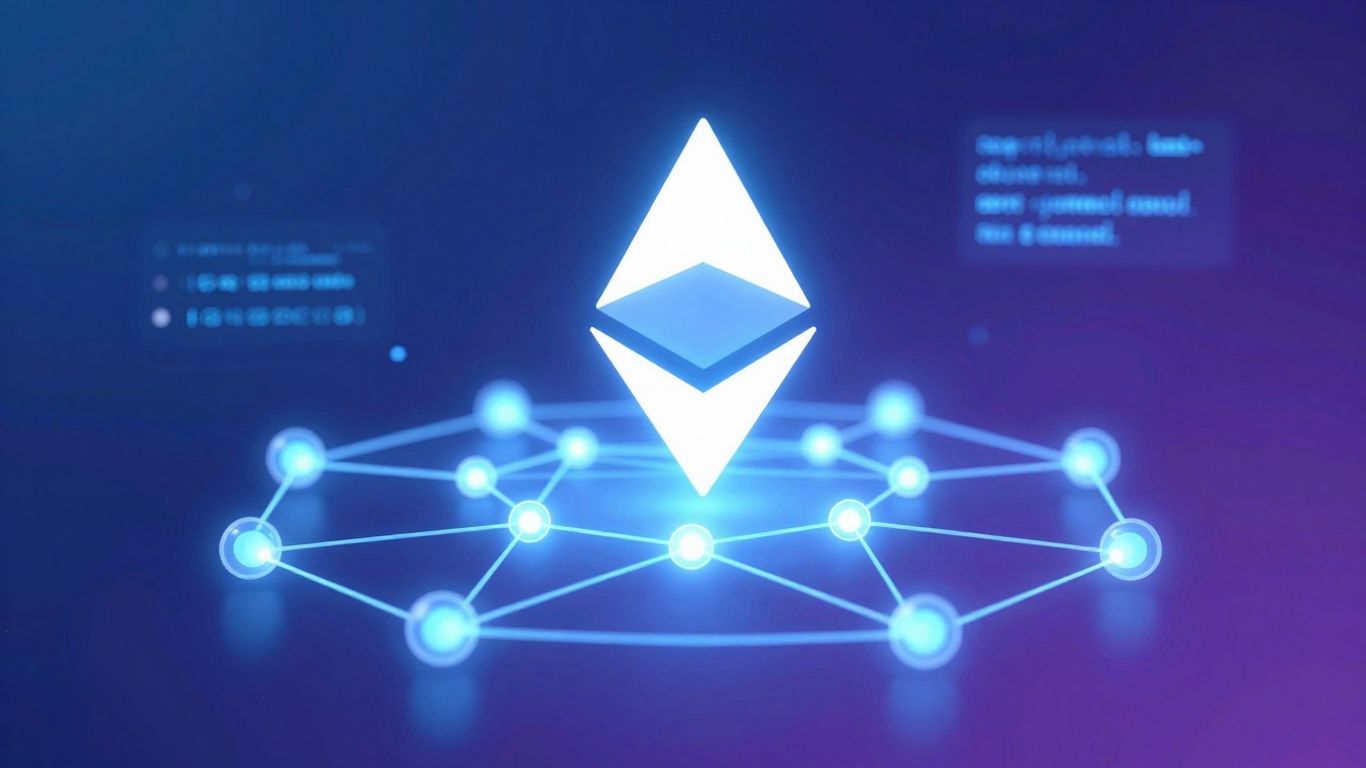[ newsletter ]
Stay ahead of Web3 threats—subscribe to our newsletter for the latest in blockchain security insights and updates.
Thank you! Your submission has been received!
Oops! Something went wrong. Please try again.
Discover the best web3 wallet Reddit users recommend for 2025. Explore top picks like MetaMask, Coinbase Wallet, and more for secure crypto management.





Trying to figure out the best web3 wallet reddit users are recommending for 2025? It's a common question, and honestly, with so many options out there, it can get confusing fast. We've looked at what people are actually chatting about on Reddit to help you sort through the noise. Whether you're new to the crypto scene or you've been around for a bit, choosing the right place to store your digital assets is a pretty big deal. Let's break down some of the top contenders and see what the community thinks.

When you start looking into Web3, especially on Reddit, MetaMask is pretty much the name that pops up everywhere. It's like the default setting for anyone messing around with Ethereum and all the stuff built on it. Originally, it was just a browser extension, which made it super easy to connect to decentralized apps, or dApps as folks call them, and mess with smart contracts. Now, they've got a mobile app too, so you can keep tabs on your crypto from your phone.
MetaMask is your main door to a lot of what's happening in the crypto space right now. Think decentralized finance (DeFi), NFTs, and all those new Web3 projects. It handles Ethereum and pretty much any token that runs on it, like those ERC-20 tokens. Plus, it plays nice with hardware wallets, which is a big plus if you're holding a decent amount of crypto and want that extra layer of security. It's a solid choice for interacting with the decentralized web.
Here's a quick look at what makes it stand out:
While MetaMask is fantastic for Ethereum-based assets, it's important to remember it doesn't natively support other blockchains like Bitcoin. You'll need a different wallet or a more multi-chain solution if Bitcoin is your primary focus. It's free to use, which is always a good start. You can swap tokens, manage your assets, and explore the decentralized web all from one place. For many, it's the first wallet they ever use, and it's a solid choice to get started with interacting with dApps.
It's important to keep your seed phrase safe. This is the master key to your crypto. If you lose it, you lose everything. Store it offline and never share it with anyone.
Coinbase Wallet is a pretty solid option, especially if you're new to the whole crypto thing or just want something that feels familiar and trustworthy. Since it's backed by Coinbase, a big name in the space, a lot of people feel more comfortable using it. It’s completely free, which is always a nice bonus, and it supports a massive number of tokens – we're talking thousands, so you can hold a wide variety of digital assets without needing a bunch of different wallets.
They've also put some good security features in place. You can use your fingerprint or face to unlock the app, and it shows you previews of your transactions before you actually confirm them. This helps prevent accidental sends or interacting with sketchy stuff. Plus, they have some built-in educational resources, which is handy for learning as you go.
One of the really cool things about Coinbase Wallet is how it handles different blockchains. You can swap tokens between networks right from the wallet itself, which saves you a lot of hassle and potential fees. It's designed to be easy to use, with clear menus and simple steps for sending or receiving funds. This makes it accessible for beginners, but it also has enough features for more experienced users without being overly complicated. The wallet also offers features like token approval alerts and a dApp blocklist to help keep you safe online [943a].
Here's a quick rundown of what it offers:
While it's backed by a big company, remember that with any crypto wallet, it's always a good idea to understand how it works and to keep your recovery phrase safe. Don't share it with anyone, ever.
Okay, so the Ledger Nano S. This one was a real workhorse for a long time, especially if you were into coins like Ethereum or Litecoin and wanted to keep them safe. It's a hardware wallet, which basically means it's a physical device, kind of like a USB stick, that stores your private keys offline. Keeping those keys offline is a pretty big deal for security because it makes them way harder for online hackers to get to. You'd plug it in when you needed to do something, punch in a PIN, and then confirm the transaction right there on the device itself. It was a solid way to hold a good number of different crypto assets.
However, and this is a pretty important point, Ledger has officially stopped supporting the Nano S. They've basically said it's outdated and can't keep up with all the new features and security demands of the crypto world anymore. So, while it served many people well for years, if you're still rocking a Nano S, it's probably time to start thinking about an upgrade. This move by Ledger really shows how fast things change in the crypto space and highlights the need for newer, more capable hardware wallets.
The core idea behind hardware wallets – keeping your crypto offline – is still a top-notch security strategy. But technology moves fast, and what was cutting-edge a few years ago might not cut it today.
If you're in the market for a hardware wallet right now, you'll want to look at Ledger's newer models or other brands that are actively developing and supporting their devices. The goal is still the same: protect your digital assets from online threats, but the tools to do that are constantly evolving.
When you're talking about serious security for your crypto, Trezor is a name that comes up a lot, especially on Reddit. These guys make hardware wallets, which are basically like a super-secure digital vault for your private keys. Think of it like a physical key to your crypto bank vault – you need the actual device to approve any transactions. This offline approach is a big deal because it means hackers can't just reach through the internet and grab your stuff. It's a solid choice if you're holding a decent amount of crypto and want that extra peace of mind.
Trezor offers a couple of main models, the Model T and the Model One. The Model T is their fancier option with a color touchscreen, while the Model One is a bit more basic but still packs a punch security-wise. Both are designed to keep your digital assets safe from online threats.
Here’s a quick look at what makes Trezor stand out:
Keeping your crypto safe is the main goal here. Trezor wallets are built with that in mind, focusing on keeping your private keys offline and requiring physical interaction for any movement of funds. It’s a bit more involved than just using a mobile app, but for many, the security benefits are well worth the extra step.
While they're not the cheapest option out there, and you do have to manage a physical device, Trezor wallets are frequently recommended by experienced crypto users on Reddit for their reliability and strong security features. If you're serious about protecting your investments, Trezor is definitely worth a look.
Exodus is a pretty solid wallet, especially if you're someone who likes things to look good and work well on your phone. It’s got this really clean design that makes managing your crypto feel less like a chore. You can buy, sell, and even stake some coins right from the app, which is super handy when you're on the go. What really makes Exodus stand out is its ability to handle assets from a bunch of different blockchains all in one place. This means you can swap tokens between networks without needing to jump over to a separate exchange, saving you time and, let's be honest, some cash on fees.
It’s also nice because it works across different devices – desktop, browser, and mobile. Plus, if you're looking for extra security, Exodus can connect with Trezor hardware wallets. It’s a good option if you’re holding a variety of crypto and want a wallet that’s both functional and easy on the eyes.
Here’s a quick rundown of what you get:
While Exodus doesn't have its own built-in exchange like some other wallets, its focus on a great user experience and broad compatibility makes it a strong choice for anyone managing a diverse crypto collection. It’s a wallet designed to be approachable for newcomers but capable enough for seasoned users. You can find out more about Exodus's features on their official page.
Trust Wallet is a pretty popular choice, especially if you're looking for a mobile-first experience. It's quite straightforward to set up and use, which is a big plus for people who are just getting into crypto. You can hold a wide variety of coins and tokens, and it also lets you interact with decentralized applications (dApps) and NFTs directly from your phone. They've put a lot of effort into making it easy to manage your digital assets without needing to be a tech wizard.
One of the things that stands out is its broad support for different blockchains and tokens. This means you're not usually limited to just one or two networks, which is great for exploring different parts of the crypto world. It's a non-custodial wallet, meaning you control your private keys, which is a key aspect of security in the crypto space.
Here's a quick look at what Trust Wallet offers:
Trust Wallet has a strong reputation for security, and it's backed by Binance, one of the largest crypto exchanges. This association can give users a sense of confidence, though it's always wise to do your own research and understand the security measures in place for any wallet you choose. They've earned an AAA security rating from Cer.live, which is a good indicator of their security practices.
Electrum is a name that pops up a lot if you're primarily focused on Bitcoin. It's not really designed for people who want to juggle a bunch of different altcoins; this wallet is pretty much laser-focused on Bitcoin. And honestly, that's not a bad thing at all. For Bitcoin users, especially those who like to tinker and have a lot of control over their transactions, Electrum is a solid choice.
What really makes it stand out is how customizable it is. You can tweak a lot of settings, which is great for more experienced users who want to fine-tune their transactions. It's also known for being pretty lightweight and fast, which is a nice bonus. Plus, it's open-source, meaning people can look at the code to check for security issues, which builds a lot of trust.
Electrum is a good pick if your crypto world revolves around Bitcoin and you appreciate having granular control over your wallet's settings and security. However, if you're new to crypto or you're holding a variety of coins beyond Bitcoin, Electrum might feel a bit clunky. It doesn't have the slick, user-friendly interface that some of the newer wallets boast, and you won't find features like staking or direct access to DeFi platforms here. It's a workhorse for Bitcoin, not a Swiss Army knife for all of crypto.

MyEtherWallet, or MEW as most folks call it, is a bit of a classic in the crypto wallet scene. It's a web-based wallet, meaning you just hop onto their site through your browser to use it. This makes it pretty accessible, which is nice. What a lot of people on Reddit seem to appreciate about MEW is that it really puts you in the driver's seat when it comes to your private keys.
This is a pretty big deal because your private keys are essentially the master keys to your crypto stash. MEW has been around for a good while and has built up a solid reputation for being flexible. It lets you connect with all sorts of different blockchain applications. It's not a wallet that holds your keys on their servers; instead, you generate and manage them yourself. This is a key difference compared to some other wallets out there.
When you're using a wallet like MyEtherWallet, it's super important to get a handle on how to keep your private keys or keystore file safe. If you lose those, well, you lose access to your crypto, plain and simple.
Here's a quick rundown of what users often mention:
MEW is a good option if you like having direct control over your crypto assets and are comfortable managing your own security. It's not the flashiest wallet, but it gets the job done for those who prioritize user-managed keys.
Zengo is a wallet that really tries to make things simple, especially if you're just starting out with crypto. It's available on your phone and computer, which is handy. What's different about Zengo is how they handle security. Instead of storing your private keys in one spot, they use something called MPC, or multi-party computation. Basically, this means the keys are split up, making it harder for anyone to get to them. It's a pretty neat way to keep your stuff safe without you having to do a bunch of complicated steps.
With Zengo, you can buy, sell, and even stake your crypto right inside the app. This means you don't always have to move your coins to an exchange for those actions. They support a lot of different cryptocurrencies, over 380 according to their site, so you've got plenty of options.
While Zengo offers a lot of convenience and strong security features, it's important to know that it's not a free service. They have a subscription fee, which helps them keep developing the app and provide customer support. This is how they fund their operations, and many users find the support to be quite good.
So, we've talked about a bunch of different wallets, but what about the tokens that power them? It's a bit of a newer concept, but some wallets have their own native tokens that give you extra perks. Think of it like a loyalty program, but for your crypto. The Best Wallet Token, or BEST, is one of these. It's the native coin for the Best Wallet app, which has been growing pretty fast.
This token is designed to give holders benefits right inside the app. What kind of benefits, you ask? Well, you can get lower fees on trades, better staking rewards – we're talking up to 83% APY, which is pretty wild – and even get early access to new projects before they're widely available. It's basically trying to make the wallet experience better for its users.
Here's a quick look at what the BEST token offers:
The idea behind these native tokens is to create a sticky ecosystem. If you're getting better rates and exclusive access just by holding the token, you're more likely to stick with that particular wallet. It's a smart way to build loyalty and reward active users, but it also means the token's value is pretty tied to how well the wallet itself performs and how many people are actually using it.
Right now, the BEST token is still in its early stages, with a presale happening. It's built on both the BEP-20 and ERC-20 standards, meaning it can work across different blockchains. If you're already a big fan of the Best Wallet app, then looking into its native token might be worth considering, especially if you plan on using its DeFi features a lot. Just remember, like any crypto, it comes with its own set of risks, and its success is really linked to the adoption and development of the Best Wallet platform itself.
So, after digging through what everyone's talking about on Reddit, picking the right crypto wallet in 2025 really comes down to what you need. Whether you're all about top-notch security with a hardware wallet, or you prefer the ease of a software option for everyday use, there are solid choices out there. Remember to think about which coins you'll be holding and how you plan to use them. Don't just grab the first one you see; take a moment to compare features and make sure it feels right for you. Getting this step right is a big deal for keeping your digital money safe and sound.
When you're picking a crypto wallet, security is the most important thing. Think about features like fingerprint or face ID logins, making sure your secret keys are kept safe, and if the wallet can store your crypto offline. These features are key to protecting your digital money from being stolen.
A 'hot wallet' is connected to the internet, making it easy for quick access and daily use. A 'cold wallet', on the other hand, is kept offline, which is the safest way to store your crypto for the long term, like a digital vault.
People often like non-custodial wallets because you have total control over your private keys. This means if the wallet company ever has a problem or gets hacked, your crypto is still safe because only you hold the keys.
A wallet that supports multiple blockchains means you can store and manage different types of cryptocurrencies from various networks all in one place. It's like having one organizer for all your different coins, instead of needing a separate one for each type.
Yes, hardware wallets are generally considered the safest option for storing crypto. Because they keep your private keys completely offline, they are much harder for hackers to access compared to software wallets that are connected to the internet.
Think of private keys like the secret password to your digital bank account. They prove you own your crypto and allow you to send it. If you lose your private keys, you lose access to your crypto forever. That's why keeping them safe is crucial.


